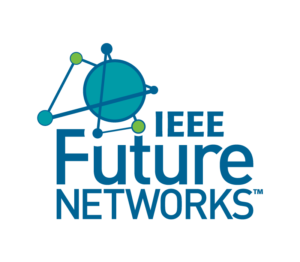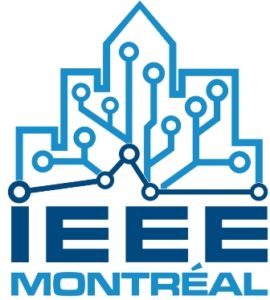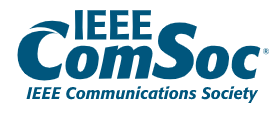13 October 2022 // 11:00 – 12:30 // Virtual
ORGANIZERS
- Alex Galis, University College London (UCL), United Kingdom (Great Britain), a.galis@ee.ucl.ac.uk
- Zhe Lou, Huawei Technologies European Research Center, Germany, zhe.lou@huawei.com
SCOPE
The core principle of IP addressing and routing in the Internet has remained stable for 50 years. However, the Internet is under significant strain during its evolution due to its scale and the increasingly demanding services it is called to support. Although ad-hoc solutions over the years have allowed IP networks to cope with emerging requirements in an incremental fashion, further improvements are tough to achieve.
Meanwhile, the addressing and routing innovations are active inside Limited Domains (LD – a technical domain with consistent utilization of routing and other policies as enforced by the entity that manages the domain), which are domain-specific. The innovative technologies lead to extra business values with new capabilities, increased flexibilities, efficient utilization of infrastructure resources and better quality of service. Examples of LDs are factory networks, IoT networks, edge networks, CDN networks, satellite networks, extreme requirements use cases domain, etc.
Both inside and across limited domains, addressing and routing have faced many challenges. The support for highly dynamic topologies is one of them, which emanates from satellite and vehicular network deployments. The mobility of network nodes can cause stability problems to existing routing protocols. Supporting alternative addressing semantics beyond network locations is another area of investigation for future routing solutions.
Moreover, scenarios involving programmable paths, multi-path, multihoming, security, etc., bring new challenges and opportunities to existing routing protocols and solutions. Additional challenges are related to the emerging 6G requirements of unified integration of network segments and limited domains as a compute continuum, which support seamless execution of services across multiple domains capable of a unified service provision beyond best effort across heterogeneous communication and computing environments.
Network and service management is about administering networks and services with direct support for all their operations. It aims to integrate fault, configuration, accounting, performance, and security management in the networking systems and leverage the self-management, automation and autonomic capabilities enabling unprecedented abstraction, disaggregation, operation, integration, and programmability in network infrastructures and services. It creates a level of decoupling between the infrastructure delivering the service and the service elements.
Although the two areas were developed relatively independently in the past 50 years, there is an urgent and critical requirement to break the boundaries and increase direct interactions between different IP infrastructure, management systems, and application domains capable of a unified service provision beyond best effort across heterogeneous communication and computing environments. Such development would significantly enhance and profoundly change how communication infrastructures are designed and operated, enabling rapid and innovative service creation.
New solutions for inter-computing management systems with routing beyond the Internet’s inter-networking capabilities would make seamless services execution across multiple and inter-working domains possible, each possibly applying different policies and mechanisms for routing, security, access to resources and application services.
In addition, the solution space in the addressing, routing and management domains has been evolving in a fragmented way. Too many ad-hoc solutions can lead to unnecessary complexity, increased fragility and even security/privacy leakage. A more holistic approach needs to be taken to design architectural recommendations to meet economic and technical objectives to avoid these potential risks. Expected benefits include service performance guarantees, better support for dynamic topologies and mobile users, improved security and privacy, extended data plane programmability and routing scalability, and reengineering level 3 & 4 protocols to meet 6G emerging requirements.
TOPICS OF INTEREST
Based on the successful SARNET21 workshop at IEEE HPSR 2021 conference, the following research works, technical achievements, innovations, and visionary papers on the following topics, but not limited to, are welcome for submission to the NET-GENES22 workshop.
- Internet-like architecture supporting much higher dynamics and versatility for its topology while significantly lowering energy consumption
- Reference architectures and frameworks for routing
- Network abstractions and open APIs for Routing and Management
- New solutions for integration of addressing, routing, and management systems in 6G
- Innovations in routing technologies and addressing in future networks
- IP addressing with multi-semantics (e.g., location, name, topology, etc.) enhancement
- Network interoperability in the presence of alternative addressing
- Pluginized routing protocols
- Multiple Routing in network slices
- Distributed routing aggregation
- Service routing
- Network slice-based routing
- Topology based routing
- Routing security and privacy
- Resource management mechanisms for deterministic data transmission
- Energy harvesting, storage, and utilization for routing and management optimization
- Frictionless inter-domain resource management
- Deterministic Networking and Routing
- Protocols and methods for delivery of high precision services with KPIs guarantees
- Methods and frameworks enabling customized functions on data packets and processes to program the header of the packets
- High-performance in-network processing and management for routing and forwarding
- Limited domains and their interconnection
- Ad-hoc multicast creation and management
- High performance, programmable networks for the Edge and Internet of things
- End-to-end network programming
- APIs, multi-limited domain frictionless orchestration; interoperability multi-domain domain methods and algorithms for extreme performance networking, such as very low latency, ultra-high peak data rate, time-sensitive networking, and deterministic networking
- Methods for efficient support for the new emerging application domains: Internet of senses, holographic communications, massive digital twinning, and XR, fully autonomous driving, flying networks
- In-network service level optimization; predictable KPIs and QoS
- Management of complexity introduced for realizing the additional addressing, routing, and management semantics
ACCEPTED PAPERS
An Open Unified Addressing System for 6G Communication Networks – Guanwen Li -Huawei China, David Lou – Huawei Germany, Alex Galis – University College London UK, Jinze Yang -Huawei China, Chuang Wang – Huawei China, Sheng Jiang -Huawei China, Zhe Chen – Huawei China, Xing Tong – Huawei China
A Framework for QoS-Enabled Semantic Routing in Industrial Networks: Overall Architecture and Primary Protocols – Paolo Bellavista- University of Bologna, Italy; Mattia Fogli -University of Ferrara, Italy; Luca Foschini- University of Bologna, Italy; Carlo Giannelli University of Ferrara, Italy; Lorenzo Patera -University of Bologna, Italy; Cesare Stefanelli – University of Ferrara, Italy
Cost-efficient Federated Reinforcement Learning-Based Network Routing for Wireless Networks – Zakaria Abou El Houda – University of Montreal, Canada; Diala Naboulsi – École de Technologie Supérieure, Canada; Georges Kaddoum -ETS Engineering School, University of Québec, Canada
PANEL: Evolving Edge-Cloud-Network Continuum Functions
Chair & Moderator: Alex Galis – University College London, UK
Panel Abstract: Digital transformation is accelerating to transform society, economy, and industry using rapidly evolving digital technologies such as AI and IoT. In the Beyond 5G and 6G era, edge-cloud-network computing and connectivity will play a key role in handling a massive amount of real-world data close to the source or end users at very short latency to further advance digital transformation.
The expected benefits in the future networks include performance improvements, efficient dynamic reconfiguration and programmability, KPIs guarantees, reengineering the IP layer, new ultra-low-latency services, and other precision services.
This panel will review the new frontiers, research and development challenges and platforms needed for future edge-cloud-network continuum infrastructure computing and connectivity in multi-domain ecosystems (operators, equipment providers, research and others). Topics include but are not limited to Revisited Internet to enable beyond best-effort service delivery, network-level determinism, KPIs with guarantees, high-precision communication/computing and programmability, metaverse as cross-domain network services research.
SHORT PRESENTATIONS
- Christian Esteve Rothenberg – University of Campinas, Brazil – “Challenges in high-precision communication/computing and programmability”
- Mohamed Faten Zhani – l’École de Technologie Supérieure ÉTS Montreal, Canada – “Challenges in network-level determinism”
- Luis M. Contreras – Telefonica, Spain – “Exposing compute and connectivity information for enabling edge-cloud-network continuum”
SHORT BIOS

Luis M. Contreras earned an M.Sc. degree on Telecommunications from the Universidad Politécnica de Madrid (1997), holds an M. Sc. on Telematics jointly from the Universidad Carlos III of Madrid and the Universitat Politècnica de Catalunya (2010), and a Ph.D. on Telematics from the Universidad Carlos III de Madrid (2021). Since August 2011 he is part of Telefónica I+D / Telefónica CTIO unit, working on 5G, SDN, virtualization, transport networks and their interaction with cloud and distributed services, as well as on interconnection topics, being active in several standardization for a (IETF, O-RAN, ETSI, etc). He is also part-time lecturer at the Universidad Carlos III of Madrid. Before the position in Telefónica he worked in Alcatel and Orange.

Christian Rothenberg is Associate Professor (tenure-track) and head of the Information & Networking Technologies Research & Innovation Group (INTRIG) at the School of Electrical and Computer Engineering (FEEC) of the University of Campinas (UNICAMP), where he received his Ph.D. in Electrical and Computer Engineering in 2010. From 2010 to 2013, he worked as Senior Research Scientist in the areas of IP systems and networking, leading SDN research at CPQD R&D Center in Telecommunications, Campinas, Brazil. He holds the Telecommunication Engineering degree from the Technical University of Madrid (ETSIT – UPM), Spain, and the M.Sc. (Dipl. Ing.) degree in Electrical Engineering and Information Technology from the Darmstadt University of Technology (TUD), Germany, 2006. Christian has contributed to 07 international patents, co-authored three books, and over 200 scientific publications, including top-tier scientific journals and networking conferences such as SIGCOMM and INFOCOM, altogether featuring 10 000+ citations (h-index: 30+, i10-index: 70+)

Mohamed Faten Zhani is an associate professor with the department of software and IT engineering at l’École de Technologie Supérieure (ÉTS Montreal) in Canada. His research interests include future Internet architectures, cloud computing, network function virtualization, software-defined networking and resource management in large-scale distributed systems. Faten received the IEEE/IFIP IM 2017 Young Researchers and Professionals Award as a recognition for outstanding research contribution and leadership in the field of network and service management.

Alex Galis is a Networked and Service Systems professor at University College London (UCL), United Kingdom (www.ee.ucl.ac.uk/~agalis/). His current interests are in 5G/6G Networking and Management, Network and Cloud Programmability, AI-enabled networking, Virtualization and Softwarization, Autonomic Networking, Deterministic and High-precision Networking, and Servicing. He has co-authored more than 300 publications in the future Internet areas and standards, including 11 research books. He was co-chair at ITUT-T Future Networks FG, a co-editor of IEEE Communications Magazine series on Network Softwarization and Management, IEEE Communication Magazine Feature Topic on Advances in Networking Software, IEEE JSAC series on Network Softwarization and Enablers, and Wiley’s ETRI Journal. He has served as General chair/TPC chair/keynote and panel chair/tutorials in IEEE conferences such as NOMS/ IM/ CNSM/ ICIN/ CloudNet/ NetSoft/ WMNC/ HPSR.

David Lou graduated as Ph.D. in Electronic Engineering at Ghent University in 2005. In the same year he joined the Alcatel-Lucent Bell Labs as an Innovation Researcher. He had a leading involvement and management role in several European and national research projects (Giant, Smart Touch, Metaverse1, Mistra, Shift-TV, etc.), and standardization bodies (MPEG). In 2016 he joined Huawei Technologies as a Chief Researcher based in Munich, Germany. He is responsible for defining the research strategy, steering disruptive network innovation and coordinating collaboration with industrial and academic partners. He is also leading the standardization activities in various SDOs (e.g. ITU-T, IETF, ETSI, etc.) His interests mainly covers IoT/IIoT/I4.0, next generation industrial networking architecture, deterministic communication, network security and privacy, video streaming and transportation, and immersive communication. He is the co-chair of the IIC Networking Task Group & Edge Computing Task Group and has been actively involved in relevant industrial development activities. He has been granted with more than 30+ patents.
Sign up for email alerts to get the latest news and announcements for the 2022 IEEE Future Networks World Forum. If you have specific questions, contact us at FNWF@ieee.org.

















